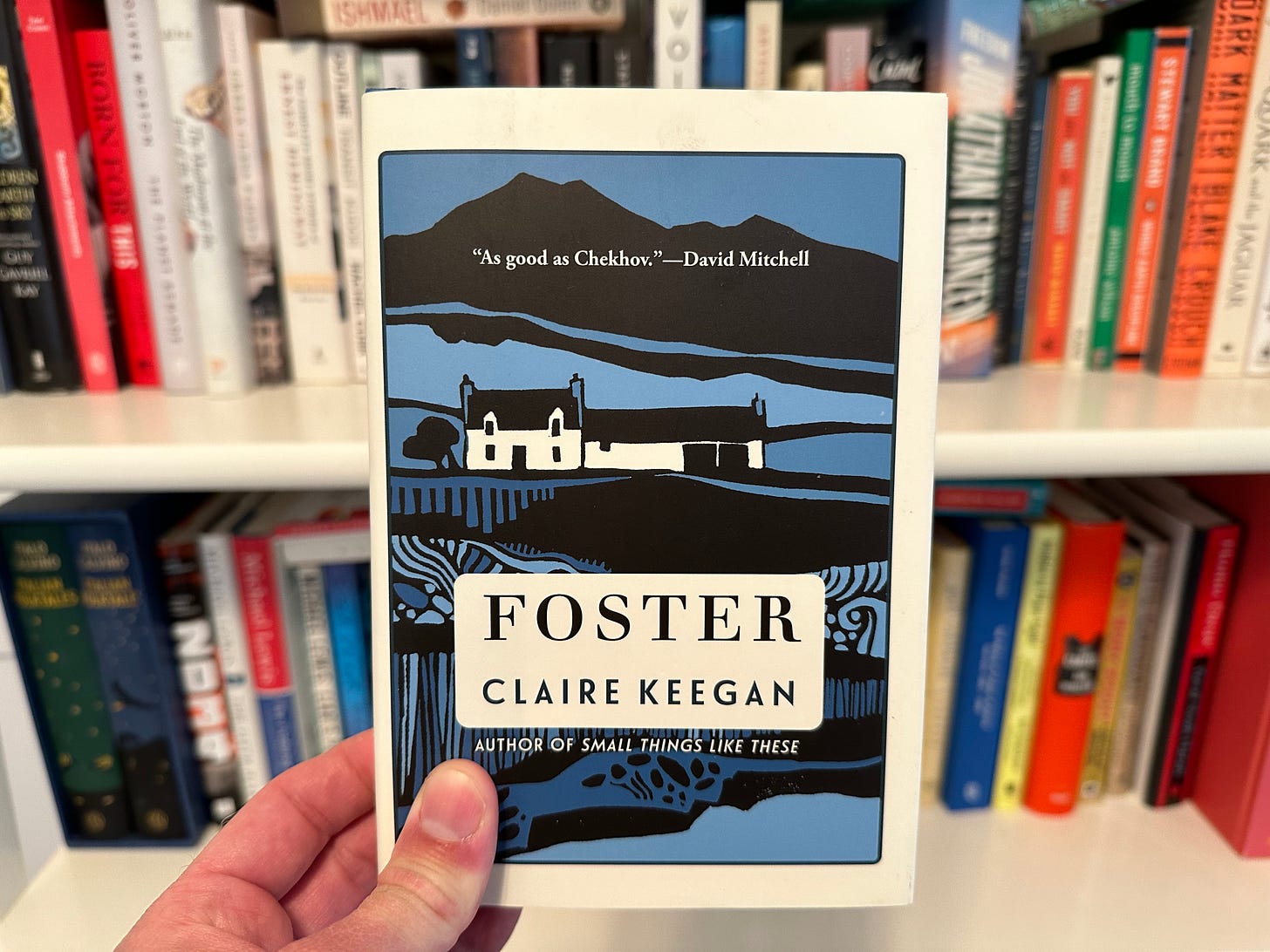To all the new subscribers who signed up when James Clear featured a passage from Foundry in his newsletter, welcome! I’m a longtime fan of James and Atomic Habits—his writing provides creative fuel for mine—so it was a fun surprise to open his email and see him quote my latest novel, and then to watch the quote percolate through the internet and show up in all kinds of unexpected places.
Books are strange artifacts. Authors write them, but readers bring them to life by transforming a bunch of tiny printed symbols into an entire imaginary world that can steal your heart and open your mind and help you face whatever fate throws your way (fate has a rude habit of chucking things about whenever it damn well pleases). And, if you’re anything like me, when you really connect with a book, when you read something and feel yes, this!, then the first thing you want to do is share that feeling with people you care about by telling your friends, by quoting passages from it like James, by pointing to something you love in the hope that others might love it too.
That’s why I send this newsletter. I hope you like it. And if you don’t, just unsubscribe and find something else that clicks for you. May you all find your wedge.
And now, a book I love that you might too:
Foster by Claire Keegan is about a girl in rural Ireland who goes to live with her mother’s cousin for a summer. The story’s simplicity belies its emotional and psychological depth. Every word earns its place. Every beat makes you want to find out what happens next. Every chapter will do something to you that you weren’t expecting. This book is a dagger: short, finely honed, dangerous.
Things worth sharing:
My best career advice: Do the most interesting thing, then share what you learn.
Wonderful interview with Hugh Howey that goes deep on writing fiction and book publishing. Hugh's journey has influenced mine since my first manuscript. Eleven novels in, I'm still learning from him.
Courage isn’t the absence of fear, it’s what’s required to overcome it. Just so, optimism isn’t about ignoring problems, it’s about choosing to believe that they’re soluble.
Neal Stephenson, The Diamond Age: “Now nanotechnology had made nearly anything possible, and so the cultural role in deciding what should be done with it had become far more important than imagining what could be done with it.”
I’ve never been much of a note-taker because memory is such a useful filter for interestingness. When I have an idea, I wait to see if it can survive in the wilderness of my mind. I only act on those that prove themselves via intellectual natural selection.
News focuses on dramatic events, which are often bad, while positive developments tend to be incremental but compound over time. So here's the good news: living conditions have improved tremendously over the past 200 years.
Jeff Jarvis, The Gutenberg Parenthesis: “The book is the book. It is a space between covers to be tamed. Its finitude makes demands upon author and editor, who decide what fits, what is worth saying and what they hope is worth discussing, remembering, and preserving—though it is the reader who will make those decisions, the reader who finishes making the book.”
When people ask what I think about AI, Vision Pro, TikTok, tech regulation, etc., I point them to The Analog Trilogy—my best ideas on this stuff are in those novels (which you can order directly from me if you want a set of signed hardcovers).
If you haven’t watched Bottoms, it’s hilarious.
John McPhee, Draft №4: "If something interests you, it goes in—if not, it stays out. That’s a crude way to assess things, but it’s all you’ve got. Forget market research. Never market-research your writing. Write on subjects in which you have enough interest on your own to see you through all the stops, starts, hesitations, and other impediments along the way."
Thanks for reading. We all find our next favorite book because someone we trust recommends it. So when you fall in love with a story, tell your friends. Culture is a collective project in which we all have a stake and a voice.
Best, Eliot
Eliot Peper is the author of Foundry, Reap3r, Veil, Breach, Borderless, Bandwidth, Neon Fever Dream, Cumulus, Exit Strategy, Power Play, and Version 1.0. He also consults on special projects.
“A spy thriller about semiconductors; an acid trip; a lightning rumination on how thoroughly tech shapes the world around us. I absolutely love it.”
-Yudhanjaya Wijeratne, author of The Salvage Crew, on Foundry




